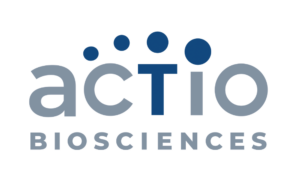 Actio Biosciences recently announced that they have received both orphan drug designation and rare pediatric disease designation for ABS-0871, a TRPV4 inhibitor, for the treatment of TRPV4+ Charcot-Marie-Tooth disease subtype 2C (CMT2C) from the U.S. Food and Drug Administration (FDA).
Actio Biosciences recently announced that they have received both orphan drug designation and rare pediatric disease designation for ABS-0871, a TRPV4 inhibitor, for the treatment of TRPV4+ Charcot-Marie-Tooth disease subtype 2C (CMT2C) from the U.S. Food and Drug Administration (FDA).
CMT2C is caused by mutations in the TRPV4 protein, which helps regulate many cell processes. These mutations in CMT2C make the TRPV4 protein overactive, causing harmful effects in nerve cells. Actio’s lead drug candidate, ABS-0871, is designed to reduce this overactivity.
ABS-087 is advancing towards the clinic for the treatment of CMT2C and TRPV4 related bone diseases. Actio reports that the evaluation of this compound in preclinical disease models of CMT2C has demonstrated marked improvements in motor function and mobility, compared to untreated controls.
“CMTRF is excited that Actio Biosciences has received these two designations from the FDA for their small molecule ABS-087 in CMT2C,” says Dr. Riann Egusquiza, Director of Research for CMTRF. “It is extremely encouraging to see the FDA recognizing the urgency for treatments for rare CMTs and we are excited for the Actio team and entire CMT2C community for this milestone.”
“We share with the CMTRF a commitment to the development of highly effective new treatments for CMT,” says David Goldstein, CEO of Actio Biosciences. “We look forward to working together to develop the best medicine we can for CMT2C.”
The FDA grants orphan drug designation to therapies intended for the treatment of rare diseases that affect fewer than 200,000 people in the U.S. Rare pediatric disease designations are granted for rare diseases that primarily affect children under 18 years old. These designations provide certain benefits to promote the development of therapies for rare diseases.
To learn more, visit https://actiobiosciences.com/actio-biosciences-receives-orphan-drug-and-rare-pediatric-disease-designations-for-the-treatment-of-charcot-marie-tooth-disease-2c/
